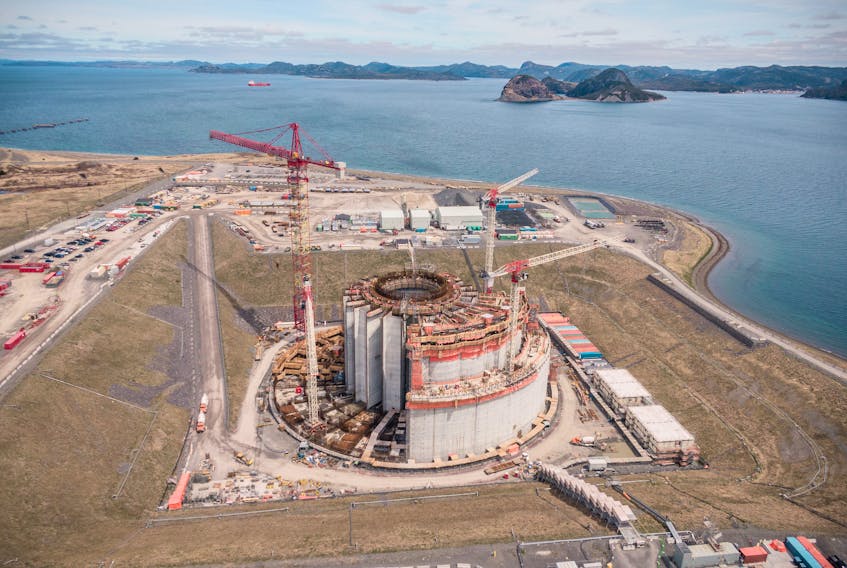Last week, the government doled out $41.5 million to Husky Energy and partners to prop up West White Rose, a project that might never be built, under cover of protecting 331 jobs. Every single job counts in this province, especially now. But throwing money at the oil sector is terrifyingly short-term thinking, and unfair to other struggling workers and sectors. The province needs to wind down the sector. There is no room for expanding production or undertaking new exploration.
This reality is becoming ever clearer. Also last week, leading research institutions and experts in collaboration with the UN Environment Programme released The Production Gap Report tracking the world’s progress on aligning fossil fuel production with the imperative to get emissions to zero by 2050 to avoid catastrophic climate crisis. The message: producers must rachet down oil production by six per cent each year for the next decade.
That report comes amid a sea change in global energy markets and oil majors. Investors with trillions of assets under management, like the Norwegian Sovereign Wealth Fund, Black Rock, and the European Investment Bank, are phasing out fossil fuel investments. Even oil companies are getting out of fossil fuels. This month saw yet another massive write-down by an oil supermajor: $20 billion by Exxon Mobil. Five of the largest oil companies in the West — BP, Chevron, Exxon, Shell, and Total — have to date set aside $70 billion in fossil fuel assets, with the Europeans redirecting investments toward renewables.
Now here we are, marooned by low oil prices and shackled with debt.
The low carbon transition is now as much about profit and economic development as climate stability. Last month, Mark Carney, former Bank of Canada governor, underscored to the financial sector that this transition is “the greatest commercial opportunity of our age.” It’s also a job-rich one: the International Labour Organization estimates 24 million green energy jobs will be created this decade.
Heeding these changes, governments are turning their backs on fossil fuel extraction. On Thursday, Denmark became the latest country to commit to fossil fuel phase-out, joining France, Germany, Ireland, New Zealand, Spain, Sweden and others. The incoming American administration has earmarked $2 trillion for a clean energy transition.
But the Newfoundland and Labrador government is running hard in the opposite direction. The funds for last week’s oil bailout come from $320 million the federal government allocated to bring down emissions and help workers impacted by the COVID-19-intensified oil downturn. Prime Minister Justin Trudeau’s advice was to ensure “we’re well-positioned into a future that’s changing.”
Those funds should be used to kickstart a transition for the long-term benefit of workers and our economy. Instead, the Oil and Gas Industry Recovery Task Force is focused on “reposition(ing) the industry for recovery for the long term,” with more oil bailouts coming. But this runs contrary to the imperatives — market and climate — to wind down oil.
That N.L. could enter the global oil game seemed like a moonshot in the 1970s. But we got there through our government learning from other oil producers, investing R&D dollars, building infrastructure, retooling our university and college system to train workers, and enticing private sector investment.
Out of this effort, we briefly tasted (some of the) economic benefits of oil. But along the way, we became purveyors and promoters of fossil fuels that are primarily responsible for the climate crisis. Now here we are, marooned by low oil prices and shackled with debt. The path to recovery is obvious: N.L. needs a just transition plan that includes a managed wind-down of oil and a scale-up of sectors to benefit from the low carbon future.
We are well-positioned to pivot. N.L. has some of the strongest renewable energy resources on the planet. A rapidly growing technology sector. World-class education and research facilities. The construction know-how and infrastructure at the ready. The province can leverage these competitive advantages to set us up for a future that is no longer fully reliant on a volatile resource sector. Moreover, through our experience in the oil industry, we’ve forged relationships with the very companies that are seizing the opportunities in diversifying away from fossil fuels. The door is open for collaboration.
Let’s look up to see what’s happening around us and start running in the right direction.
A.V. Carter, PhD, associate professor, department of political science and Balsillie School of International Affairs; associate director, Arts First, faculty of arts; co-chair, Climate Justice Working Group, Faculty Association of the University of Waterloo
Delia Warren, outgoing director, Iron & Earth East









